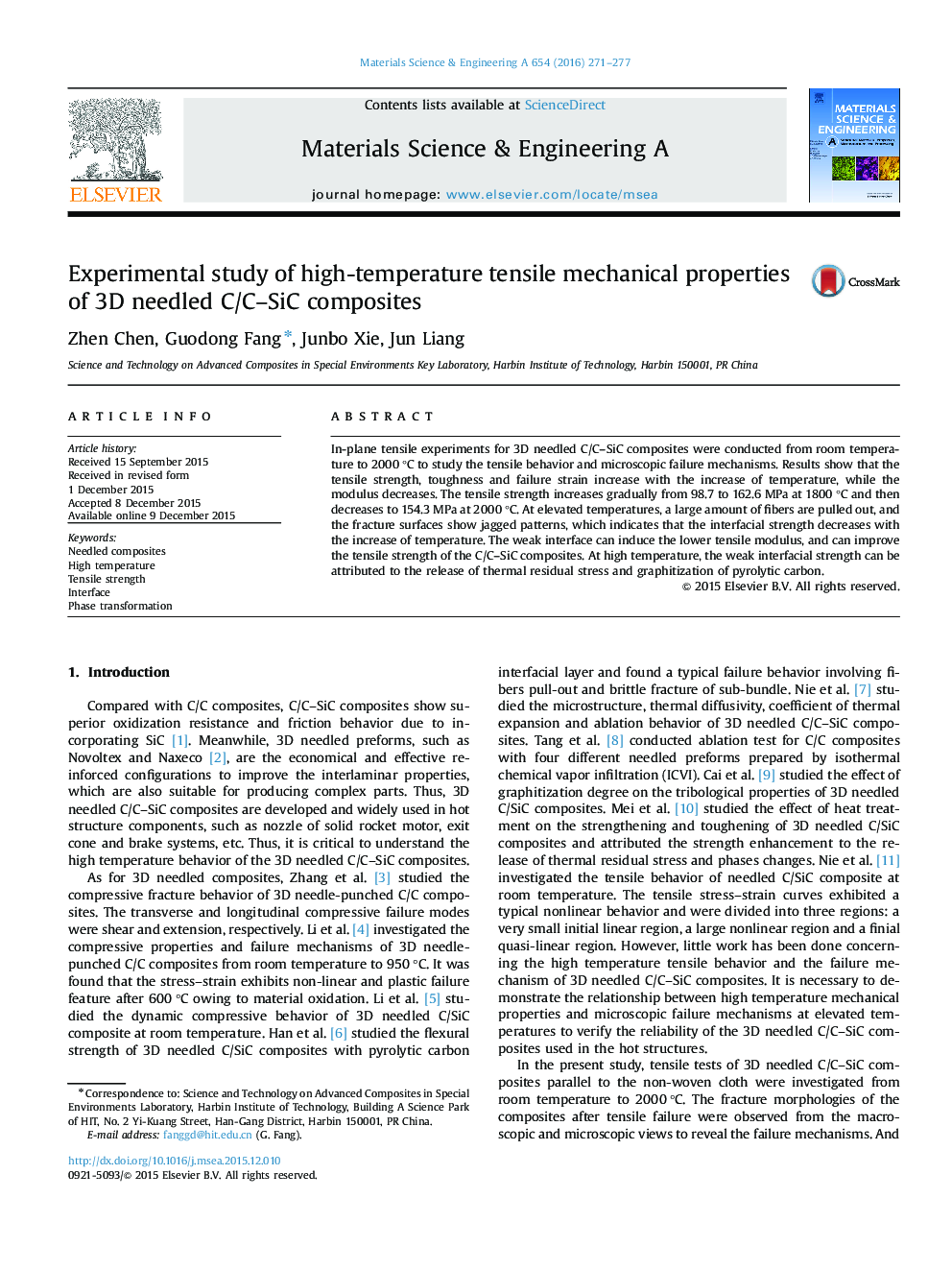| Article ID | Journal | Published Year | Pages | File Type |
|---|---|---|---|---|
| 7975654 | Materials Science and Engineering: A | 2016 | 7 Pages |
Abstract
In-plane tensile experiments for 3D needled C/C-SiC composites were conducted from room temperature to 2000 °C to study the tensile behavior and microscopic failure mechanisms. Results show that the tensile strength, toughness and failure strain increase with the increase of temperature, while the modulus decreases. The tensile strength increases gradually from 98.7 to 162.6 MPa at 1800 °C and then decreases to 154.3 MPa at 2000 °C. At elevated temperatures, a large amount of fibers are pulled out, and the fracture surfaces show jagged patterns, which indicates that the interfacial strength decreases with the increase of temperature. The weak interface can induce the lower tensile modulus, and can improve the tensile strength of the C/C-SiC composites. At high temperature, the weak interfacial strength can be attributed to the release of thermal residual stress and graphitization of pyrolytic carbon.
Related Topics
Physical Sciences and Engineering
Materials Science
Materials Science (General)
Authors
Zhen Chen, Guodong Fang, Junbo Xie, Jun Liang,
